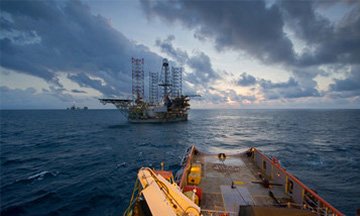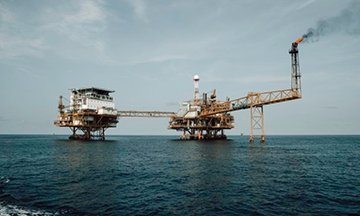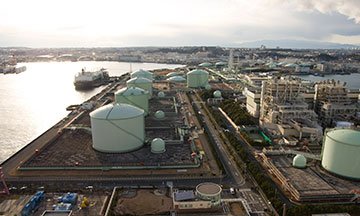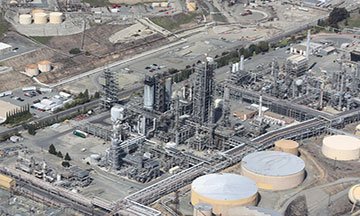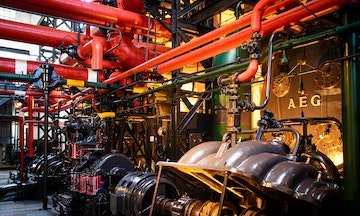10 Day Intensive Training on Fundamentals and Dynamics of the LNG Industry
Course Overview
How does the LNG industry work?
The demand for liquified natural gas (LNG) is increasing day by day in many parts of the world because now the world is moving towards less polluting and safer energy means.
Although conventional gas resources are still available their locations become more difficult to get access to. More offshore gas resources in extreme weather have now been found and developed.
What is LNG value chain?
The LNG supply chain is growing owing to its ultimate need as we all know the LNG industry has potential and a promising future. LNG exchange has quadrupled over the final two decades and is set to twofold over the other two. The major exporters of LNG like Australia, Qatar, the United States, etc. have realized its brighter outlook than other fossil fuels as it has comparatively lower cost and lower emissions from production and combustion.
This Zoe training course will provide you with the most advanced knowledge and expertise to master the science of fundamentals and dynamics of the LNG industry. Our training is conducted with practical case studies and latest theoretical information. It will empower you to take responsible and senior positions at a government and multinational organisation with huge potential for growth within the organisations. It will enhance prospects for better opportunities outside your current organisation as well.
Course Objectives
The key objective of this program is to equip professionals with —
- The latest pricing trends into what is going on in the LNG market
- Give the fundamentals required to understand the LNG business
- The expertise of handling of equipment involved in the extraction, handling, and storage of LNG reserves
- Current technological advancement and methodology that are getting popular and used widely
- In-depth knowledge of mechanisms involved in locating LNG reserves and geophysics involved
- Effective use of simulation tools and algorithms used in the field
- Knowledge of the evolving dynamics of the gas industry and its key importance
- Understanding of International law involved in natural resource exploration undersea
- Understanding of LNG supply chain
- Expertise in risk management and assessment
- Adaptation of code of ethics & effects of exploration on marine life
Training Methodology
This collaborative ‘Mini MBA: Fundamentals and Dynamics of the LNG Industry’ course
will comprise the following training methods:
- Lectures
- Seminars & Presentations
- Group Discussions
- Assignments
- Case Studies & Functional Exercises
Like all our acclaimed courses, this program also follows the ‘Do-Review-Learn-Apply’ model
Organisational Benefits
By professionals undertaking this course, their respective organisations will derive the following benefits:
- Expertise in gas supply chain dynamics and fundamentals to expand growth in the LNG sector
- Technical knowledge of operating and managing LNG infrastructures such as terminals and control centres
- In-Depth knowledge of logistics of LNG and basics of its transportation
- Project management of LNG plants and other infrastructure
- Policymaking and administrative knowledge to handle LNG business
- Risk management and feasibility of the business model
- Training of personals on-site and off-site
Personal Benefits
Professionals undertaking this training course will derive the following benefits:
- In-depth understanding of the LNG industry
- Explore new opportunities in multinational organisations
- Increased confidence and skillset to train other professionals and new comments to the LNG industry
- Project management of the LNG sector leading to a higher role in the industry
- Enables professionals to have required knowledge to be promoted within the organisation
- Handling cargo of transport basics of the LNG industry
Who Should Attend?
- Energetic personals who want to flourish their careers in LNG industry
- Professional working in the oil and gas industry
- Senior engineers and technocrats of government energy department or organisation
- Any other professional willing to groom himself with knowledge of the LNG industry
Course Outline
The course covers the following areas important to understanding the LNG industry:
Module 1: Basics of LNG industry
- Reserves exploration
- Global outlook
- Shipping
- Import and export
- Cost and value parameters
- Stakeholders
- Future prospects of the LNG industry
Module 2: Development and production
- Exploration to the production process
- Worldwide production
- LNG conditioning process
- Sales gas
- Gas specification
- International markets
- Worldwide production
- Refrigeration
Module 3: Storage and logistics
- Storage tank system
- Compression
- Nitrogen rejection process
- Gas pipeline system
- Transportation of LNG
- Exporting and importing countries
Module 4: LNG as a business
- LNG trade
- LNG benchmarks
- Market structure
- Economics of production plants
- Demand and supply
- Risk assessment
- Value estimation
Module 5: LNG Cargo
- Terminals
- Terminal operations
- Cargo transfers
- Ship transfers
- Loading procedures
- Pre and post-loading operations
- Pre- and post-arrival operations
- Equipment
Module 6: Finance and management
- LNG Plant management
- Project management
- Conflict prevention and resolution
- Commerciality of LNG structures
- Finances and finance structures
- Fundings
- Capital markets
Module 7: LNG legal attributes
- Terminal Regulations
- Transport regulations
- Shipping contracts
- Environmental impacts and regulations
- Import and export agreements
- Upstream and downstream agreements
- ISM code
Module 8: Custody transfer process
- Custody transfer procedure
- Custody measurements types
- Certification of custody
- Loading certification
- Temperature measurement
- Volumetric measurement
- Quality control mechanisms
- Safety protocols



